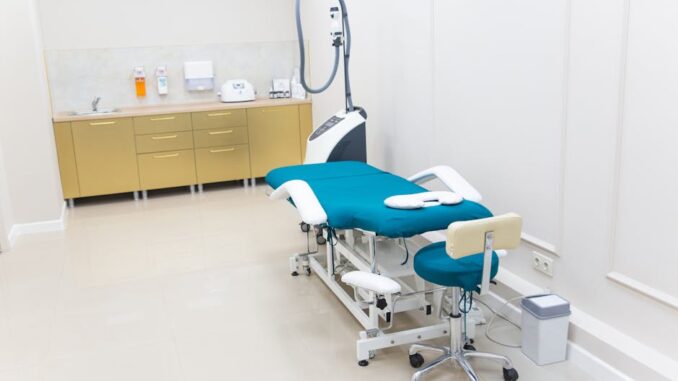
Summary
This article explores the best states for outpatient substance use disorder treatment, considering factors like program availability, affordability, and support systems. It emphasizes the importance of individualized care and highlights states like Pennsylvania, California, and Arkansas for their accessibility and resources. The article also discusses the benefits of outpatient treatment, such as flexibility and cost-effectiveness.
** Main Story**
Finding the Right Path: Navigating Outpatient Substance Use Disorder Treatment Across the United States
Substance use disorder (SUD) affects millions of Americans, and seeking effective treatment is a crucial step towards recovery. Outpatient treatment programs offer a flexible and accessible alternative to inpatient care, allowing individuals to maintain their daily routines while addressing their SUD. However, the quality and availability of outpatient treatment can vary significantly across states. This article explores some of the best states for outpatient SUD treatment, considering factors such as program availability, affordability, support systems, and specialized care options.
Key Considerations When Choosing a State for Outpatient Treatment
Several factors contribute to a state’s effectiveness in providing quality outpatient SUD treatment:
- Program Availability: A higher number of licensed treatment facilities per capita indicates greater accessibility to care. States with diverse program options, including individual counseling, group therapy, medication management, and support groups, cater to a wider range of individual needs.
- Affordability: The cost of treatment can be a significant barrier for many individuals. States with lower average costs for outpatient services or robust public funding for behavioral health initiatives make treatment more accessible.
- Support Systems: Strong community-based support systems, including recovery groups, peer support networks, and family therapy programs, play a vital role in long-term recovery.
- Specialized Care: Individuals with co-occurring mental health disorders, pregnant women, or specific demographic needs benefit from specialized programs tailored to their unique challenges.
States Leading the Way in Outpatient SUD Treatment
Several states stand out for their comprehensive and accessible outpatient treatment options:
- Pennsylvania: Pennsylvania ranks highly for its SUD treatment access and investments, boasting a high number of facilities per capita and significant per capita spending on behavioral health. The state also emphasizes dual diagnosis treatment, addressing both addiction and co-occurring mental health disorders. Additionally, Pennsylvania’s Treatment Atlas platform connects individuals with local resources and funding options.
- California: California has a large number of active substance abuse treatment centers and offers a wide range of outpatient services. While the cost of treatment in California is relatively high, the state allocates substantial public funding towards outpatient care.
- Arkansas: Arkansas offers more affordable outpatient rehabilitation services compared to many other states, making it an attractive option for budget-conscious individuals.
Benefits of Outpatient Treatment Programs
Outpatient treatment offers numerous advantages for individuals seeking help for SUD:
- Flexibility and Accessibility: Individuals can attend therapy sessions while maintaining their work, school, or family commitments. This flexibility increases accessibility for those who cannot commit to residential programs.
- Comprehensive Care: Outpatient programs provide a holistic approach, addressing the physical, emotional, and psychological aspects of addiction through individual counseling, group therapy, and medication management.
- Cost-Effectiveness: Compared to inpatient programs, outpatient treatment is generally more affordable, eliminating the costs associated with 24/7 medical supervision and accommodation.
- Supportive Community: Outpatient programs offer a sense of community and peer support, connecting individuals with others facing similar challenges. This fosters a sense of belonging and shared experience during recovery.
- Individualized Care: Effective outpatient programs tailor treatment plans to each individual’s unique needs and challenges, maximizing the chances of successful recovery.
The Importance of Individualized Treatment Plans
Personalizing treatment plans to address specific needs and challenges is essential for successful recovery. Thorough assessments by treatment providers help identify underlying causes, co-occurring disorders, and individual strengths, allowing for targeted interventions and support.
Beyond State Lines: Accessing Resources and Support
While the state in which treatment is sought plays a significant role, various national organizations and online resources provide support regardless of location. Organizations such as SMART Recovery, Alcoholics Anonymous, and Narcotics Anonymous offer online meetings, support groups, and recovery tools.
Conclusion: A Path Towards Healing
Choosing the right state for outpatient SUD treatment depends on individual circumstances, preferences, and available resources. By considering factors like program availability, affordability, support systems, and specialized care options, individuals can make informed decisions that support their recovery journey. As of today, March 22, 2025, this information is current, but the landscape of SUD treatment is constantly evolving, so staying updated on available resources and state-specific regulations is essential.


Be the first to comment